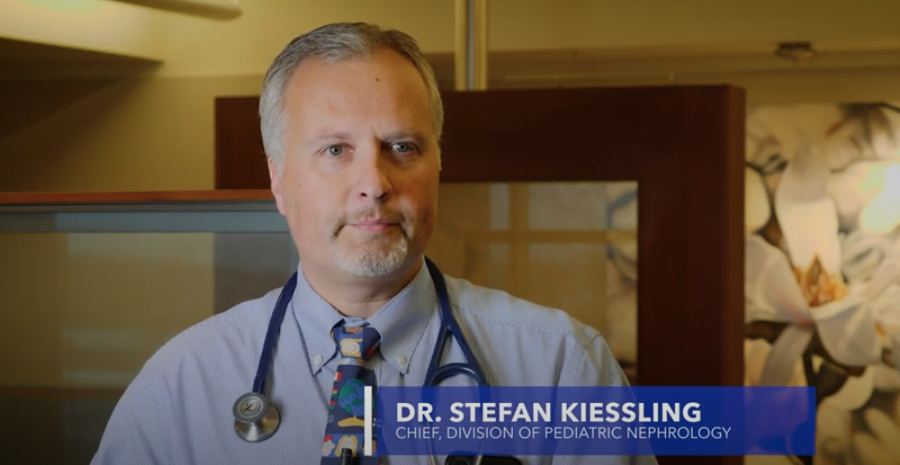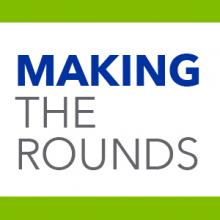

For Dr. Stefan Kiessling, helping patients is a 24/7 job


This week’s Making the Rounds features pediatrician Stefan Kiessling, MD. He is the chief of pediatric nephrology and has specialized training in pediatric kidney diseases. Dr. Kiessling is part of the UK Transplant Center and sees kidney patients ranging in age from premature babies up to 21 years of age. We chatted with him about his lifelong interest in teaching and what he finds most rewarding.
What types of conditions do you treat?
We see patients from premature-born babies up until about 21 years of age, the whole spectrum of children with kidney diseases, children who are born with abnormal kidneys or kidney disease they have developed for many different reasons. Many kids are born with kidneys that have never formed normally that, ultimately, progress towards advanced kidney disease, need for dialysis or a kidney transplant, as well as children who have acquired kidney diseases that cause blood in the urine, protein in the urine.
We also take care of a large number of children who have hypertension. The kidneys are important in regulating blood pressure, so we see a large number of children that have hypertension, either because of kidney disease but also unrelated to kidney disease, that we evaluate and treat .
Were you always interested in medicine?
I was always interested in science, and I always wanted to work with children. So initially, I really thought that I would love to become a teacher. But then I learned about the field of medicine and especially about the field of academic medicine, where it's possible to combine teaching, science, research, and patient care.
What’s the most rewarding aspect of your job?
I really love educating my patients and families and to be available for them 24/7, during the day or after hours, if the families have a question. I feel it's a huge reward to me when I can ease their concerns, or when I can explain to them what the next steps need to be in helping their child.
Sometimes it's a quick phone call, and we just provide reassurance. Sometimes it is more involved, and sometimes we tell our families, you need to bring your child to the emergency room. Those conversations are very important, and when they learn that following our advice was the right thing to do, it builds an important level of trust.
Watch our full interview with Dr. Stefan Kiessling.






